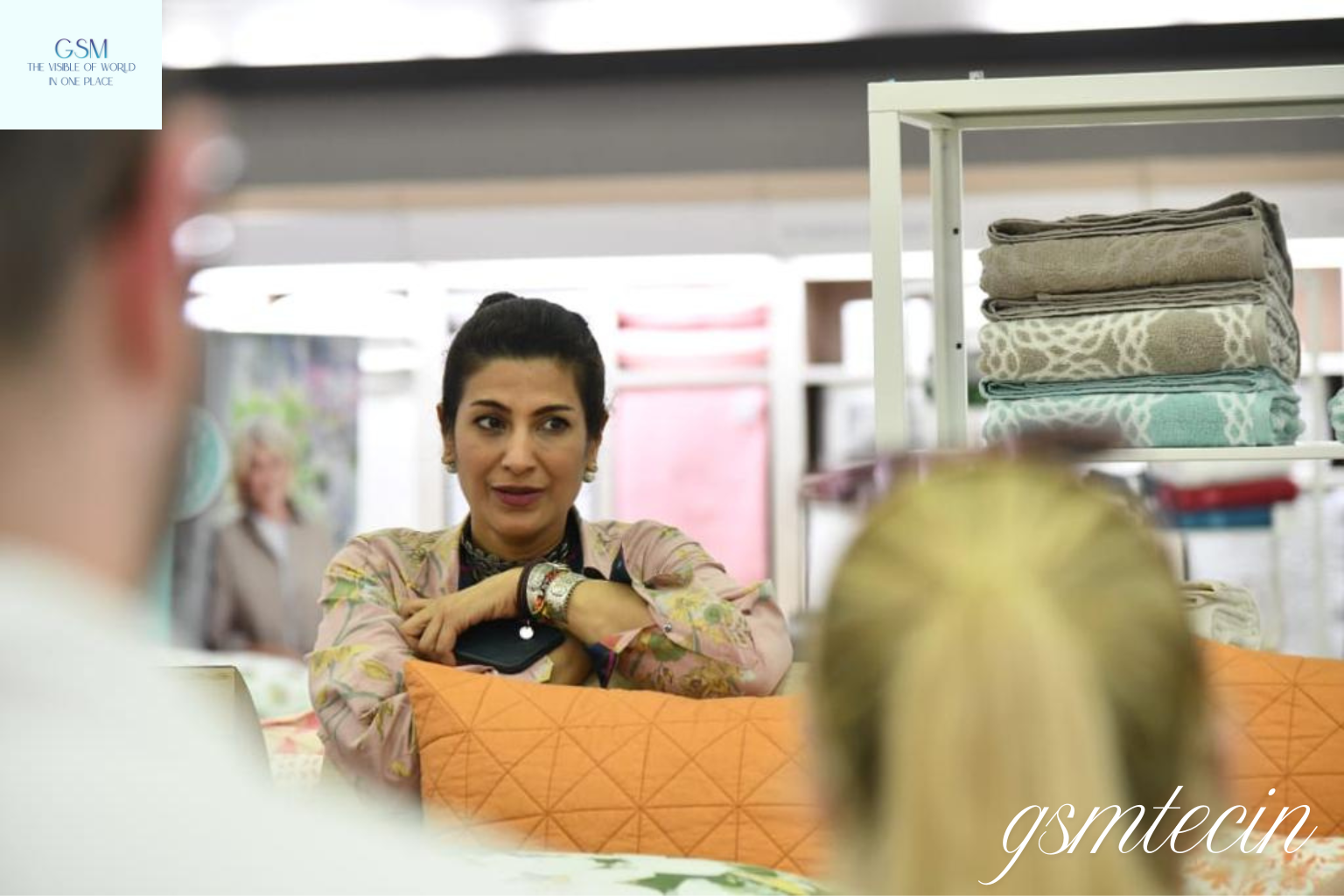From stay-at-home mom to international business executive
In a traditional Marwari home, Dipali Goenka started her business career. She married at the age of 18, put her family first, and entered the business world when her daughters were 7 and 10 years old because she wanted to motivate young girls. Her mother, a working woman who valued discipline, and her husband, BK Goenka, who instilled resilience, were her sources of strength despite her lack of a formal business background.
A 1991 trip to Belgium with her husband to purchase equipment for Welspun’s terry towel unit marked the beginning of her transition from housewife to businesswoman. A Belgian manufacturer’s disparaging comment about Indian quality sparked her resolve to establish a top-tier towel brand. Later, in 2003, this idea developed into the high-end home décor line Spaces – Home and Beyond.
Constructing Areas and Growing Welspun
Goenka took on administrative duties, established design studios, visited factories, and studied every facet of the textile industry from the ground up. She persisted in the face of obstacles, including closing Welhome stores and navigating the US recession of 2008. She began transforming the company in 2010 when leaders entrusted her with overseeing Welspun’s textile vertical.
Welspun’s textile sales increased from $400 million to over $1 billion under her direction. She took the lead in making daring decisions like purchasing Christy, the venerable UK towel company that supplies the Australian Open and Wimbledon, and creating cutting-edge products like Hygrocotton, quick-dry towels, and duvets enhanced by augmented reality.
Sustainability, Traceability, and Innovation
Goenka launched Wel-Trak (and later Wel-Trak 2.0), a patented technology to track products from farm to shelf, when supply chain problems and a controversy with a big retailer threatened Welspun’s reputation. This helped Welspun regain the trust of its customers and establish itself as a pioneer in openness.
Her sustainability efforts, which make sure that innovation and conscience go hand in hand, include reusing water for irrigation, utilising eco-friendly materials, and integrating environmental responsibility into business operations.
Supporting Women in the Workplace
The empowerment of women is closely linked to Goenka’s leadership. With the goal of 50%, she raised the percentage of women in blue- and white-collar jobs from 7–8% to 20–30%. She started SPUN, which teaches rural women to weave and sew, allowing them to make money while maintaining traditional crafts.
Additionally, she established community projects that benefited hundreds of thousands of people, such as the WelShiksha digital learning program, Welspun Vidya Mandir schools, Swasthi Swarnim vocational centres, and girls’ hostels for factory workers. Internal programs such as NEEV, Allyship, and Women of Welspun (WoW) promote inclusion and female entrepreneurship.
One of the highlights was when a female employee travelled to Arkansas on behalf of Welspun for a large retailer; this accomplishment served as motivation for many others.
Leadership Philosophy and Style
In the male-dominated textile industry, Dipali Goenka takes a different approach to leadership. By focusing on what customers actually desire rather than just technical production details, she leverages her perspective as a woman and a consumer. Her approach blends strategic thinking with empathy.
In order to gain independent credibility, she purposefully set up her corporate role so that she would report to her cousin Rajesh rather than her husband directly.
Individual Aspects and Motivators
Goenka’s own perspective on time and concentration was influenced by her mother’s orderly way of living. Not always through customary practices, she keeps her creativity and equilibrium through Kathak dance, morning exercises, and spiritual introspection.
Since both of her daughters, Radhika and Vanshika, are business owners, family discussions with Dipali Goenka frequently focus on impact and business ideas—what she humorously refers to as “Shark Tank at the dinner table.” For Dipali Goenka, leaving a legacy entails providing opportunities for others to pursue similar careers, particularly women.
She believes experiences both positive and negative greatly shape character. This philosophy drives her brand SPUN, which employs more than 200 women and positively impacts their families.
Acknowledgement and Impact
She was named one of Forbes Asia’s most influential women in business, received the CNBC Changemaker Award (2024) for her efforts, served as a brand ambassador for WEConnect International, and was a member of the World Economic Forum and FICCI FLO.
She is frequently referred to as the “CEO with a soul” because she uses her position to advocate for workplace equity and combines performance and empathy.
Life Teachings and Prospects
Her main piece of advice for young people is straightforward: Never give up. Although she acknowledges that difficulties are unavoidable, she maintains that one should keep going even when they want to give up.
Although she balances this with a fitness-focused lifestyle, she personally likes sweets from her hometown of Jaipur. She hopes to continue creating the Welspun Living legacy and pick up new skills in the future, such as artificial intelligence. The excitement of challenges continues to be her motivation: “The challenge that is not exciting, excites me more.”
The story of Dipali Goenka is essentially one of empowerment, inventiveness, and tenacity. Redefining workplace inclusion, inspiring a generation of female entrepreneurs, and transforming from a young homemaker into a global business leader, she demonstrated that empathy, vision, and courage can create a legacy as powerful as the goods her company produces.





